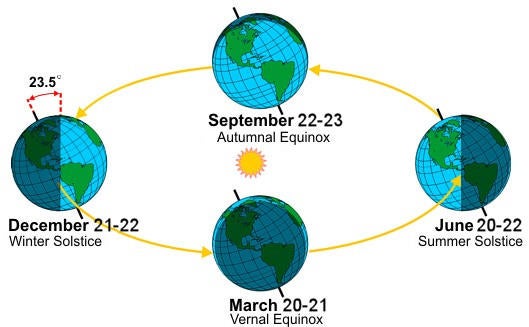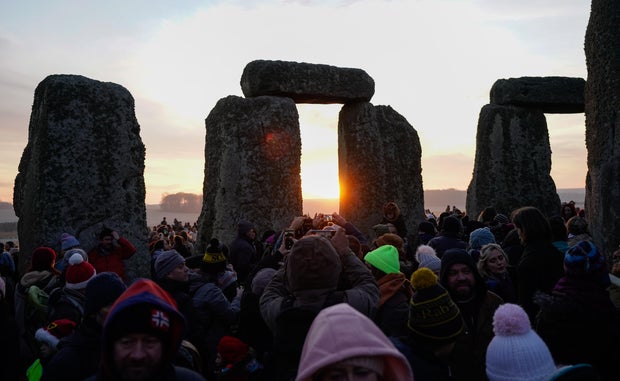CBS News
Listeria outbreak linked to deli meats causes 2 deaths. Here’s what to know about symptoms.

A lsteria outbreak linked to sliced deli meats has killed two people and sickened 28 others across 12 states, according to the Centers for Disease Control and Prevention.
It is currently unknown what brands of deli meat are tied to the outbreak, but an active investigation aims to determine the specific products that may be contaminated, the agency said in an update Friday.
“Products sold at the deli, especially those sliced or prepared at the deli, can be contaminated with Listeria,” the CDC notes on its website. “Listeria spreads easily among deli equipment, surfaces, hands and food.”
The states currently impacted include: Georgia, Illinois, Maryland, Massachusetts, Minnesota, Missouri, New Jersey, New York, North Carolina, Pennsylvania, Virginia and Wisconsin.
What is listeria?
Listeria is a type of bacteria that can cause illness known as listeriosis. The CDC defines listeriosis as “a serious infection usually caused by eating food contaminated with the bacterium Listeria monocytogenes.”
It is especially harmful to people who are pregnant, elderly (aged 65 or older) or who have weakened immune systems.
An estimated 1,600 people get listeriosis each year, and about 260 die, according to the agency.
To avoid illness, the CDC recommends people at higher risk avoid eating meats sliced at the deli or heat them to an internal temperature of 165°F or until steaming hot before eating. Refrigeration does not kill listeria.
The current outbreak has been linked to contaminated deli meat, but other types of food can also pose risks if they get contaminated with the bacteria, including unpasteurized raw milk or products made with it, or raw vegetables that had contact with listeria in the soil or fertilizer, the Mayo Clinic explains.
Symptoms of listeria infection
Signs and symptoms of listeria infection can vary. For intestinal illness, which usually starts within 24 hours after eating contaminated food and lasts around 1 to 3 days, symptoms include diarrhea and vomiting.
“This kind of illness is rarely diagnosed because laboratories do not regularly test patient stool (poop) samples for Listeria,” the CDC notes. But this can develop into invasive illness, which is when the bacteria spreads beyond the intestines.
Symptoms of invasive illness, or invasive listeriosis, generally start within 2 weeks after eating contaminated food. Symptoms for non-pregnant people include:
- Fever
- Flu-like symptoms, such as muscle aches and fatigue
- Headache
- Stiff neck
- Confusion
- Loss of balance
- Seizures
“Symptoms in non-pregnant people can be severe,” the CDC notes. “Almost 1 in 6 non-pregnant people with invasive listeriosis die.”
For pregnant people, symptoms also include fever and flu-like symptoms. While the symptoms are usually milder, and some pregnant people never even experience symptoms, the infection can harm the baby, leading to “miscarriage, stillbirth, premature delivery, or life-threatening infection of the newborn,” the CDC warns.
CBS News
12/20: CBS Evening News – CBS News

Watch CBS News
Be the first to know
Get browser notifications for breaking news, live events, and exclusive reporting.
CBS News
Saturday is the winter solstice and 2024’s shortest day. Here’s what to know about the official start of winter.

The 2024 winter solstice, the shortest day of the year, happens on Saturday, Dec. 21, in the Northern Hemisphere. The celestial event signifies the first day of winter, astronomically.
What is the winter solstice?
The winter solstice is the day each year that has the shortest period of daylight between sunrise and sunset, and therefore the longest night. It happens when the sun is directly above the Tropic of Capricorn, a line of latitude that circles the globe south of the equator, the National Weather Service explains.
The farther north you are, the shorter the day will be, and in the Arctic Circle, the sun won’t rise at all.
How is the day of the winter solstice determined?
The winter solstice occurs because of the Earth’s tilt as it rotates around the sun.
When the Northern Hemisphere tilts away from the sun, the nights last longer. The longest night happens on the solstice because the hemisphere is in its furthest position from the sun. That occurs each year on Dec. 21 or 22.
This year, it falls on Dec. 21 at 4:21 a.m ET, to be precise.
On the summer solstice, when the northern tilt is closest to the sun, we have the longest day, usually June 20 or 21.
National Weather Service
The solstices are not always exactly on the 21st every year because the earth’s rotation around the sun is 365.25 days, instead of 365 even.
Will days start getting longer after the winter solstice?
Yes. Each day after the solstice, we get one minute more of sunlight. It doesn’t sound like much, but after just two months, or around 60 days, we’ll be seeing about an hour more of sunlight.
When will winter officially be over in 2025?
The meteorological winter ends on March 20, 2025. Then, spring will last until June 20, when the summer solstice arrives.
How is the winter solstice celebrated around the world?
Nations and cultures around the world have celebrated the solstice since ancient times with varying rituals and traditions. The influence of those solstice traditions can still be seen in our celebrations of holidays like Christmas and Hanukkah, Britannica notes.
The ancient Roman Saturnalia festival celebrated the end of the planting season and has close ties with modern-day Christmas. It honored Saturn, the god of harvest and farming. The multiple-day affair had lots of food, games and celebrations. Presents were given to children and the poor, and slaves were allowed to stop working.
Gatherings are held every year at Stonehenge, a monumental circle of massive stones in England that dates back about 5,000 years. The origins of Stonehenge are shrouded in mystery, but it was built to align with the sun on solstice days.
Andrew Matthews/PA Images via Getty Images
The Hopi, a Native American tribe in the northern Arizona area, celebrate the winter solstice with dancing, purification and sometimes gift-giving. A sacred ritual known as the Soyal Ceremony marks the annual milestone.
In Peru, people honor the return of the sun god on the winter solstice. The ancient tradition would be to hold sacrificial ceremonies, but today, people hold mock sacrifices to celebrate. Because Peru is in the Southern Hemisphere, their winter solstice happens in June, when the Northern Hemisphere is marking its summer solstice.
Scandinavia celebrates St. Lucia’s Day, a festival of lights.
The “arrival of winter,” or Dong Zhi, is a Chinese festival where family gathers to celebrate the year so far. Traditional foods include tang yuan, sweet rice balls with a black sesame filling. It’s believed to have its origins in post-harvest celebrations.
Researchers stationed in in Antarctica even have their own traditions, which may include an icy plunge into the polar waters. They celebrate “midwinter” with festive meals, movies and sometimes homemade gifts.
CBS News
12/20: CBS News Weekender – CBS News

Watch CBS News
Be the first to know
Get browser notifications for breaking news, live events, and exclusive reporting.










